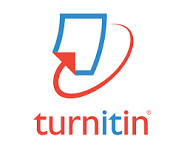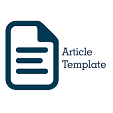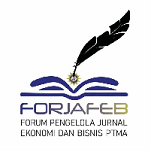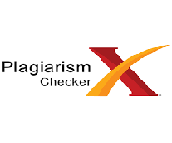- Focus and Scope
- Section Policies
- Peer Review Process
- Publication Frequency
- Open Access Policy
- Archiving
- Publications Ethics
- Indexing
Focus and Scope
Jurnal BALANCE berfokus pada penelitian yang berkaitan dengan akuntansi, keuangan dan bisnis yang relevan untuk pengembangan teori dan praktek akuntansi di Indonesia dan asia tenggara. BALANCE mencakup berbagai pendekatan penelitian, yaitu: kuantitatif, kualitatif dan metode campuran. BALANCE berfokus pada berbagai tema, topik dan aspek akuntansi dan investasi, termasuk (tetapi tidak terbatas) untuk topik-topik berikut:
- Akuntansi Keuangan
- Akuntansi Sektor Publik
- Manajemen akunting
- Akuntansi Syariah dan Manajemen Keuangan
- Auditing
- Akuntansi Perilaku (Termasuk Etika dan Profesionalisme)
- Manajemen keuangan
- Akuntansi (Etika) Pendidikan
- Perpajakan
- Pasar Modal dan Investasi
- Akuntansi Perbankan dan asuransi
- Sistem Informasi Akuntansi
Section Policies
Articles
Peer Review Process
Every article that goes to the editorial staff will be selected through Initial Review processes by Editorial Board. Then, the articles will be sent to the Mitra Bebestari/ peer reviewer and will go to the next selection by Blind Preview Process. After that, the articles will be returned to the authors to revise. These processes take a month for maximum time. In the each manuscript, Mitra Bebestari/ peer reviewer will be rated from the substantial and technical aspects. Mitra Bebestari/ peer reviewer that collaboration with Balance Journal.
Publication Frequency
Balance journal is published twice a year; in June and November with eight articles for each edition. It is also published in electronic.
Open Access Policy
This journal provides immediate open access to its content on the principle that making research freely available to the public supports a greater global exchange of knowledge.
Archiving
This journal utilizes the LOCKSS system to create a distributed archiving system among participating libraries and permits those libraries to create permanent archives of the journal for purposes of preservation and restoration. More...
Publications Ethics
Balance : Jurnal Akuntansi dan Bisnis follows the guidelines set out by the Committee on Publication Ethics (COPE) in all aspects of publication ethics, in particular, protocols of research and publication misconduct. BALANCE : Jurnal Akuntansi dan Bisnis adheres to the COPE guidelines that ensure high quality standard of ethics for authors, editors, and reviewers:
Authors
- Authors attest that the material has not been previously published and that they have not transferred any rights to the article to another party.
- Authors should ensure the originality of their work and must properly cite others work in accordance with the approved references format.
- Authors should not engage in plagiarism or self-plagiarism.
- An author should not in general publish manuscripts describing essentially the same research in more than one journal or primary publication. Submitting the same manuscript to more than one journal concurrently constitutes unethical publishing behavior and is unacceptable.
- Authors should make all data and details of their work available to the editors if there are suspicions of data falsification or fabrication.
- Authors of the article should clarify any possible conflicts of interest such as their job role, research expenses, consultant expenses, and intellectual property.
- When an author discovers a significant error or inaccuracy in his/her own published work, it is the author's obligation to promptly notify the journal editor or publisher and cooperate with the editor to retract or correct the paper.
Editors
- Editors are responsible for every article published in BALANCE : Jurnal Akuntansi dan Bisnis.
- Editors should assist authors, where possible, to ensure their articles adhere to BALANCE : Jurnal Akuntansi dan Bisnis guidelines.
- Editors may confer with other editors or reviewers when making final decisions regarding publication.
- An editor must evaluate manuscripts objectively for publication; judging each on its merit without bias towards nationality, ethnicity, political beliefs, race, religion, gender, seniority, or institutional affiliation of the authors.
- Editors should decline articles if there is a potential conflict of interest.
- Editors must ensure that documents sent to reviewers do not contain private information of the authors and vice versa.
- The editor's final decision should be relayed to authors in a timely fashion and will be accompanied by the reviewer's comments, unless they contain offensive or libelous remarks.
- If authors have a well-reasoned objection to a certain individual reviewing their work, editors should respect this request.
- Editors and all staff should guarantee the confidentiality of the submitted manuscript.
- Editors will be guided by the COPE guidelines if there is a suspected misconduct or disputed authorship.
Reviewers
- Reviewers are required to comment on possible research, ethical, and publication misconduct if they are suspected.
- Reviews should be conducted objectively. Personal criticism of the author is inappropriate. Referees should express their views clearly with supporting arguments.
- Reviewers must complete the work in a timely manner and should notify the editor immediately if they cannot complete the work.
- Reviewers are to respect the confidentiality of the manuscript.
- Reviewers should not accept manuscripts for assessment if they believe there is a potential conflict of interest between them and any of the authors.
- A reviewer should call to the editor's attention any substantial similarity or overlap between the manuscript under consideration and any other published paper of which they have personal knowledge.
- Privileged information or ideas obtained through peer review must be kept confidential and not used for personal advantage. Reviewers should not consider manuscripts in which they have conflicts of interest resulting from competitive, collaborative, or other relationships or connections with any of the authors, companies, or institutions connected to the papers.
















.jpg)


